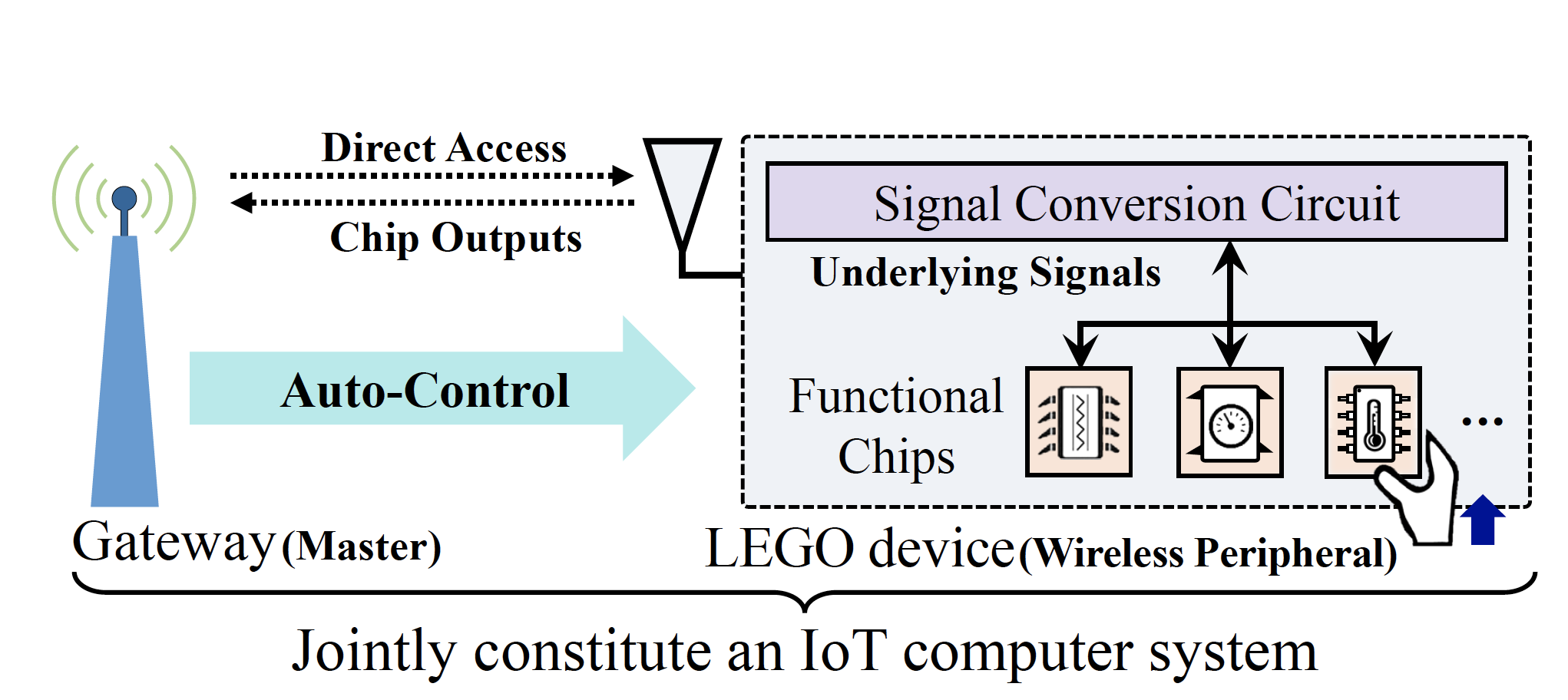

A Lightweight and Chip-Level Reconfigurable Architecture for Next-Generation IoT End DevicesChong Zhang, Songfan Li, Yihang Song, Qianhe Meng, Li lu, Hongzi Zhu and Xin WangIEEE Transactions on Computers, 73(3), pp. 747-763, 2024. |
|

|
The rapid development of IoT applications calls for re-configurable IoT devices that can easily extend new functionality on demand. However, in the current architecture, updating chip functions on the end device is highly coupled with the local microprocessor in both hardware and software aspects, leading to inadequate flexibility. In this paper, we propose LEGO, a lightweight and architecture with chip-leve plug-and-play cabilities for IoT end devices. To achieve this, we first decouping the control over heterogeneous chips from end devices to the gateway, and design a novel Unified Chip Description Language (UCDL) to access various types of functional chips uniformly. To supporting chips plug-and-play, we design a novel signal converting circuit on end devices to generate all required underlying signals for chip control. We also design a layered instruction orchestrator and hierarchical scheduler to minimize transmission overhead. The results show that our LEGO system can respond to chips plug-and-play within 0.13 seconds, and the lightweight architecture could reduce 49%∼61% of power consumption in practical scenarios compared with traditional IoT end devices that are controlled by a microprocessor. The lightweight and easy-to-deploy features of LEGO makes it helpful to reduce deployment cost, thus conducive to accelerating large-scale applications.
|